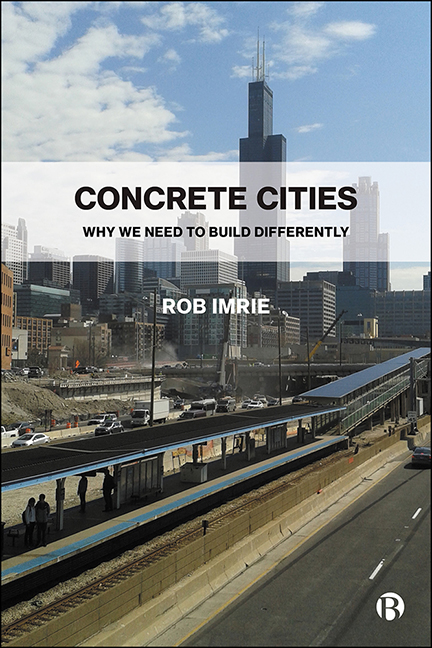Book contents
- Frontmatter
- Contents
- List of Figures
- About the Author
- Preface
- 1 Introduction: The Omnipresent Nature of Building
- 2 The Significance of Building and Construction
- 3 Building and the Construction State
- 4 Speculation and Building Booms
- 5 Disruption, Displacement and Dispossession
- 6 Demolition: Wasting the City and Teardown Building
- 7 Why Building More Housing Will Not Work
- 8 Building That Matters to People
- 9 Constructing for Species Survival
- 10 Building and Construction That Cares
- Notes
- References
- Index
4 - Speculation and Building Booms
Published online by Cambridge University Press: 30 April 2022
- Frontmatter
- Contents
- List of Figures
- About the Author
- Preface
- 1 Introduction: The Omnipresent Nature of Building
- 2 The Significance of Building and Construction
- 3 Building and the Construction State
- 4 Speculation and Building Booms
- 5 Disruption, Displacement and Dispossession
- 6 Demolition: Wasting the City and Teardown Building
- 7 Why Building More Housing Will Not Work
- 8 Building That Matters to People
- 9 Constructing for Species Survival
- 10 Building and Construction That Cares
- Notes
- References
- Index
Summary
Introduction
Speculation is a dominant feature of contemporary land and property markets and is significant in fuelling the rise in building and construction activity. It is most obvious in the changing vistas of major cities that, since the late 20th century, have spawned numerous tall or vertical buildings, often replacing land uses that command low rental values (Graham, 2016). Goldman (2011) suggests that we are living in an era of speculative urbanism, in which an objective of politicians is to transform land deemed to be of marginal use into lucrative real estate, primarily by attracting flows of global investment to fund the construction of new buildings and infrastructure. From the skylines of Shanghai and Mumbai to those of Lahore and London, the evidence of speculative construction consists of ever-escalating rates of urban development, shaped by the core logic of capitalist urbanisation in which the appropriation and redevelopment of land is intrinsic to the (re)production of economic value.
Speculation is not only the staple diet of capitalist land and property markets, and the driving force behind the building booms of the early 21st century, but also an enduring feature of human society. Investors looking to make lucrative gains from the purchase of land will take a risk on its development, with the expectation that, over the course of time, its market value will increase. Such developments are described by Shin (2013) as ‘pre-emptive’, or part of an anticipatory mode of acting in which actors tend to supply more than ‘can be consumed and with the expectation that demand will follow’. This is a recipe for overbuilding, providing much more than is needed. In this chapter, I develop the argument that speculation is fundamental in shaping the contemporary crisis of construction. This entails the overproduction of buildings and infrastructure, and a regressive urbanism in which the benefits of construction projects do not accrue to the most disadvantaged, while the ecological integrity of the environment is undermined.
I divide the chapter into three sections and begin by outlining what speculative construction is and entails, placing it in its historical context as an enduring and systemic part of building activity. From the Greek city-states to major Roman cities, speculation was a feature of early urbanisation, and is significant in shaping the supply, quality and cost of buildings, particularly dwellings.
- Type
- Chapter
- Information
- Concrete CitiesWhy We Need to Build Differently, pp. 62 - 85Publisher: Bristol University PressPrint publication year: 2021



